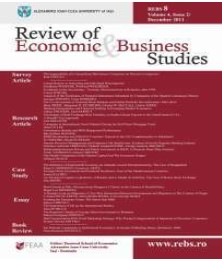AN ECONOMETRIC STUDY OF HERDING BEHAVIOUR OF DOMESTIC INSTITUTIONAL INVESTORS IN INDIAN CAPITAL MARKET: AN AUTO REGRESSIVE DISTRIBUTED LAG APPROACH
AN ECONOMETRIC STUDY OF HERDING BEHAVIOUR OF DOMESTIC INSTITUTIONAL INVESTORS IN INDIAN CAPITAL MARKET: AN AUTO REGRESSIVE DISTRIBUTED LAG APPROACH
Author(s): AJINA V.S., Rincy RAPHAEL, TOM JACOBSubject(s): Transformation Period (1990 - 2010), Present Times (2010 - today), Financial Markets
Published by: Editura Universităţii »Alexandru Ioan Cuza« din Iaşi
Keywords: DIIs; Stock Market; ARDL; AIC; ADF;
Summary/Abstract: The Indian equity market is one of emerging markets' best-performing and most promising markets. The funds that play a significant role in the Indian capital market are divided into two categories: domestic institutional flows and foreign institutional flows. There have been several studies on the flows of funds from foreign institutional investors, but only a few studies on domestic institutional investors have been conducted. Using monthly data from 2007 to 2021, this research study focuses on the impact of domestic institutional investment flow on the performance of stock market indexes. The study takes into account two sorts of variables: net flows of domestic institutional investors and the Sensex index. The data was obtained from the Reserve Bank of India's official website. The Granger Causality Test and the Auto Regressive Distributed Lag (ARDL) model reveal that domestic institutional investors have no beneficial impact on the Sensex since their investments have a short run impact on the index's movement during the entire study period.
Journal: Review of Economic and Business Studies (REBS)
- Issue Year: 2022
- Issue No: 29
- Page Range: 30-47
- Page Count: 18
- Language: English

